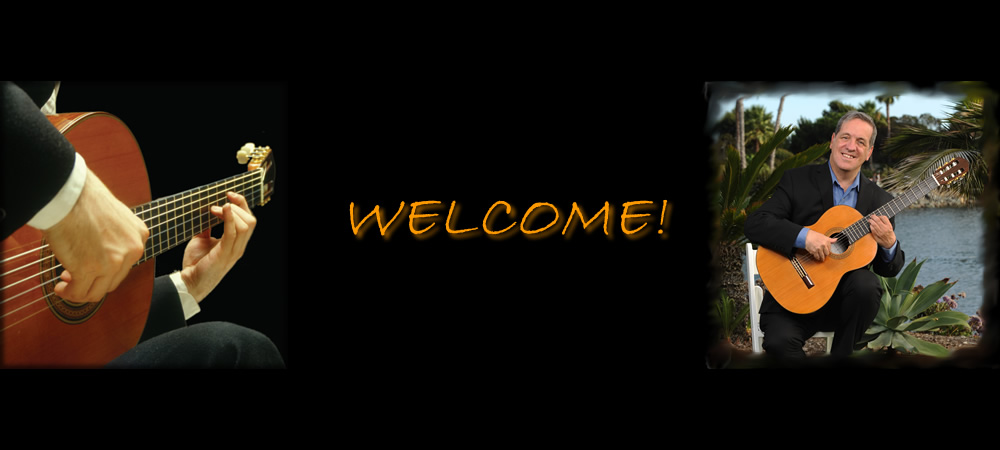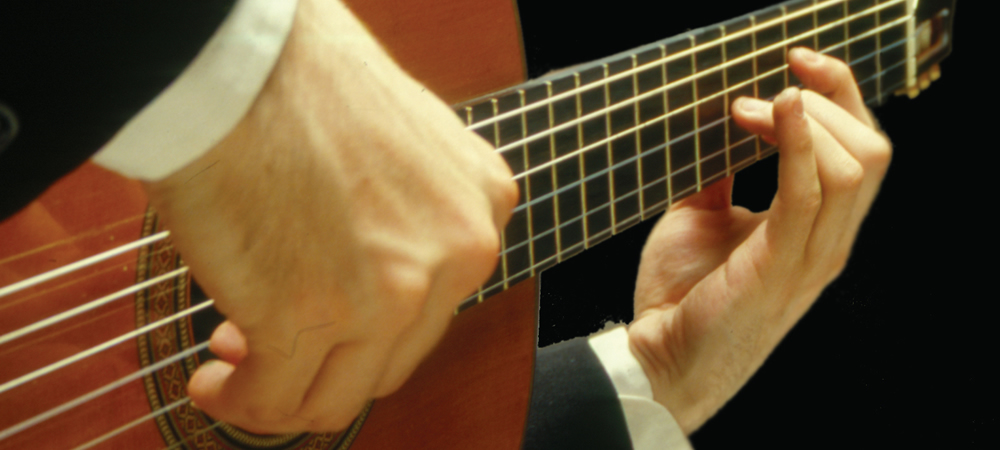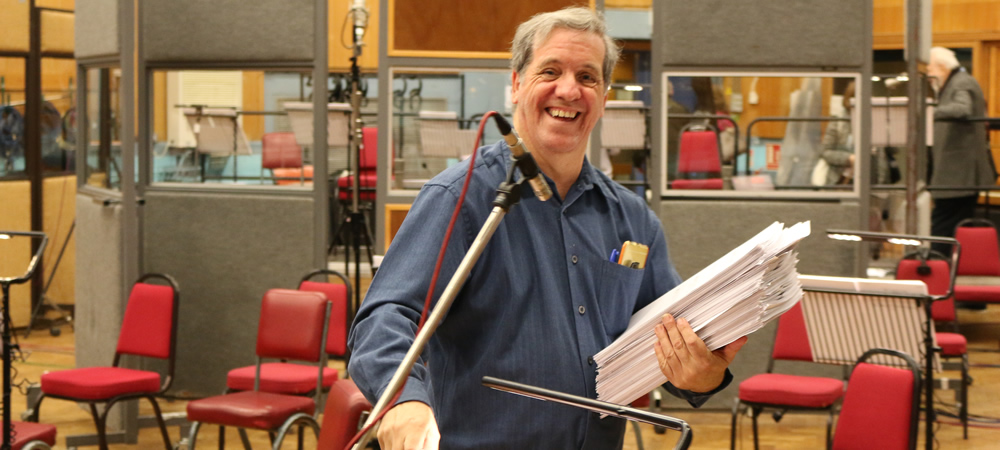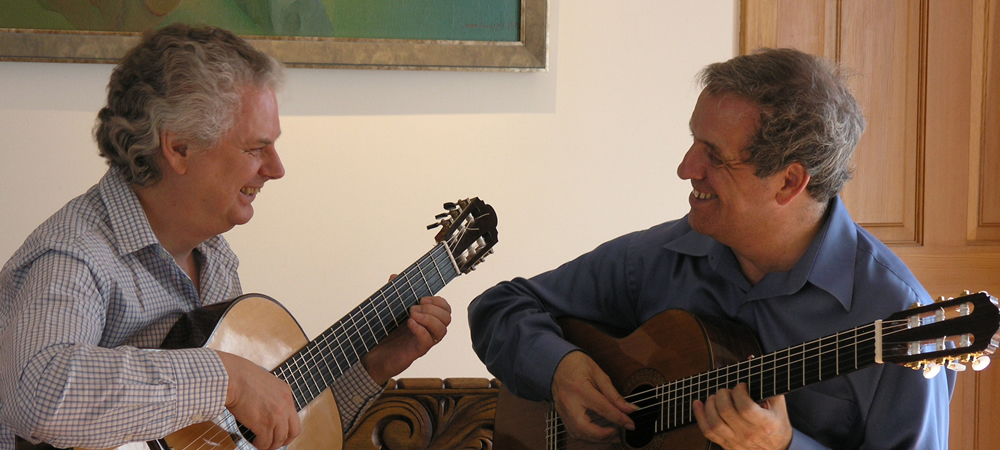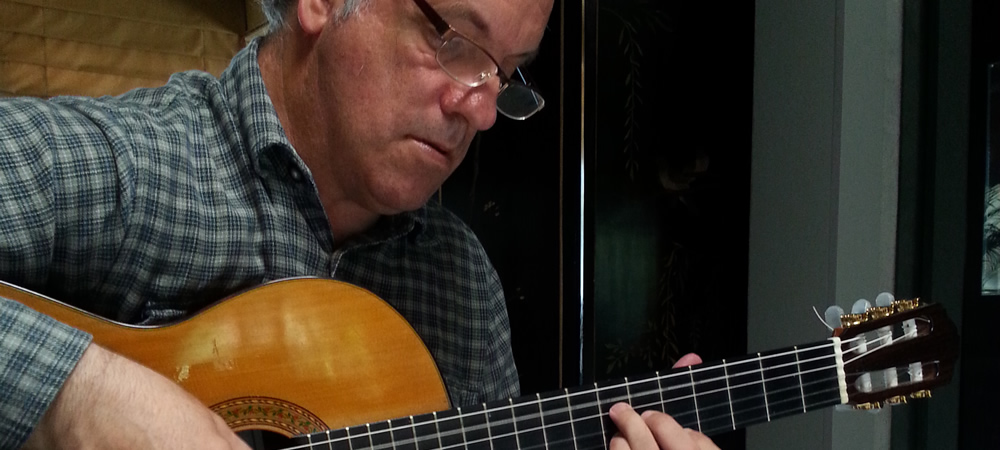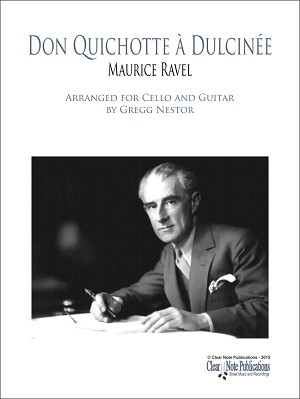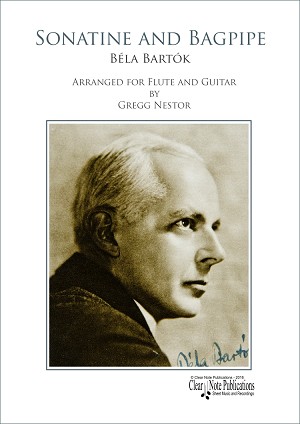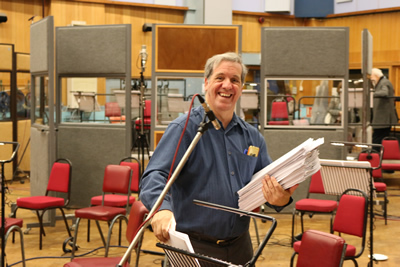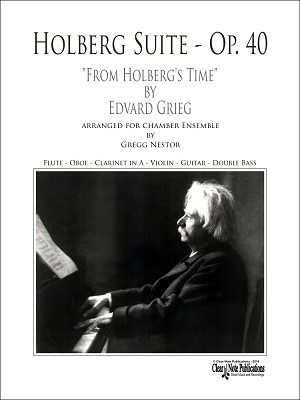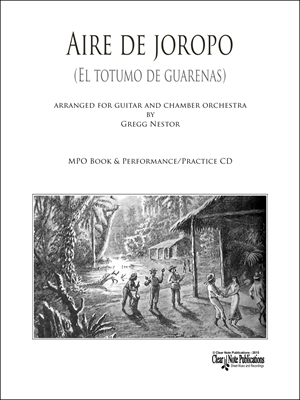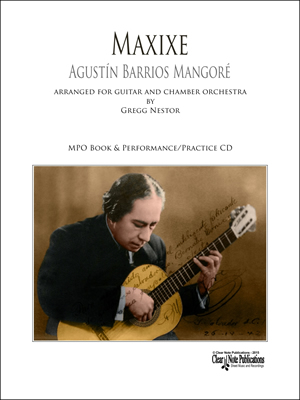Clear Note recently published a fine guitar duo by Michael Deak called Introspections for Guitar Duo. Gregg Nestor and Raymond Burley have made a recording of that entire work on their Kaleidoscope CD, also available at Clear Note.
About the Work
Introspections w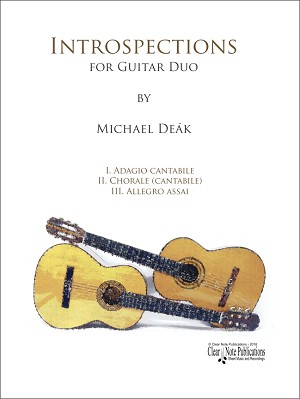 as conceived as a quiet journey into an exotic tonal landscape, intended to inspire in the listener a spirit of serenity. The piece reflects elements of Spanish music, especially in the first movement, though subtle intimations of these elements can be found throughout the entire work. Allusions to jazz harmony are also present, particularly in the second movement written in the style of a chorale, where the chordal structure is readily apparent to the ear. The final movement is influenced by Ravel, most prominently towards the end.
as conceived as a quiet journey into an exotic tonal landscape, intended to inspire in the listener a spirit of serenity. The piece reflects elements of Spanish music, especially in the first movement, though subtle intimations of these elements can be found throughout the entire work. Allusions to jazz harmony are also present, particularly in the second movement written in the style of a chorale, where the chordal structure is readily apparent to the ear. The final movement is influenced by Ravel, most prominently towards the end.
About the CD
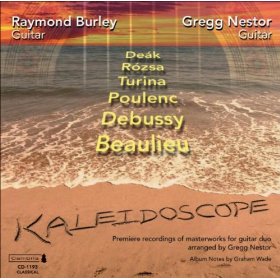 Introspections for Guitar Duo is featured on Gregg’s Kaleidoscope CD along with other excellent works by Rózsa, Turina, Poulenc, Debussy and Beaulieu.
Introspections for Guitar Duo is featured on Gregg’s Kaleidoscope CD along with other excellent works by Rózsa, Turina, Poulenc, Debussy and Beaulieu.
The guitar duo tradition stretches back to the early nineteenth century when Fernando Sor wrote duets to perform with Dionisio Aguado. Other composer / performers of this period such as Mauro Giuliani and Fernando Carulli also published fine works for two guitars. In the twentieth century various distinguished duos established an international reputation, the most eminent being the Presti-Lagoya partnership who set new standards in both technique and interpretation.
The duo is a versatile medium capable of encompassing a more complex repertoire than a single guitar. In particular the duo lends itself to imaginative arrangements from a wide variety of sources, including the pianoforte and even orchestral scores. If, as Segovia maintained, the solo instrument is ‘a miniature orchestra in itself’, it could be argued that two guitars double the instrument’s tonal and interpretative resources. The music on this recording demonstrates the duo’s capacity to present a wide range of transcriptions with authority, sensitive musicianship, and virtuosity.
